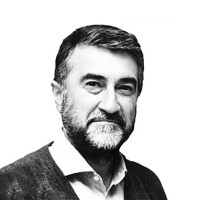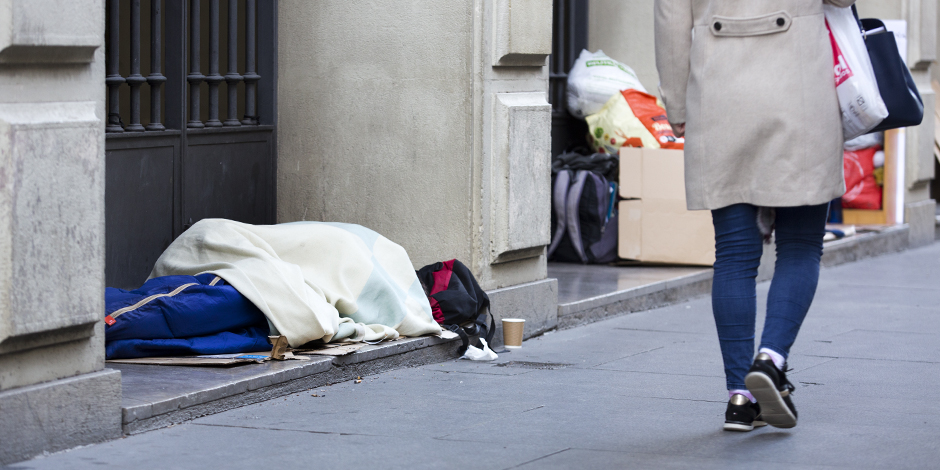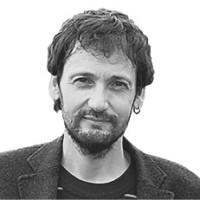What law do we need in Navarre on Climate Change and Energy Transition?

In the last debate on the Situation of the Autonomous Community of 2020, held in the Parliament of Navarre, a resolution was adopted urging the Climate Change and Energy Transition Act. It's a law that's going to have an extraordinary impact. How are we going to deal with climate change? How will the use of fossil fuels be replaced? How should the economic and health system, our mobility, the infrastructures we have, be adapted to the risks presented to us? Faced with these issues of such importance and influence in our lives, the environmental, social and trade union organizations that make up Nafarroa Bizirik want to present some critical reflections on the preliminary draft proposed.
A law under political and corporate pressure. This is a necessary legislative proposal, which should be debated a long time ago. But we must express our concern about the context in which the debate, approval and regulatory development will take place. Under the mask of green, large infrastructures are being maintained and multiplied (TAV, Yesa reservoir, Canal de Navarra, solar and wind industrial polygons, megainstalations for waste treatment, Castejón plants, extractivist mining, high energy need for hydrogen production and 5G development). And along with that, for the umpteenth time, we are suffering the attack of the multinationals, now in search of the European Reconstruction Funds.
"We are dealing with a proposal for a law that is necessary and has had to be discussed some time ago. But we must express our concern about the context in which the debate, approval and regulatory development will take place."
The main problem with climate and energy is capitalist society. And there are more and more analyses that show this from the scientific point of view. The global situation of the planet is dramatic (loss of biodiversity, change of ecosystems...) Greenhouse gas emissions remain at unsustainable levels. Climate change/chaos, with its environmental and social consequences, is occurring rapidly and with wild intensity. Behind this is a global system of insatiable production and consumption, of agriculture and industrial livestock, based on oil and gas as energy support, with a single objective of unlimited growth and profit. Consequently, in addition to significantly reducing emissions of CO2 and other greenhouse gases, the current social model needs to be questioned: with lower consumption, more local, more distributor and more de-commercialised. We must call into question Navarre’s position on the international market in the hands of the multinationals and create a new economy nearby, organising a society that is simpler and more supportive of the world’s poorest regions.
They have prevented the participatory process. And we don't say it to say. The proof is that the preliminary draft was put to the public in June, only for fifteen days, in a situation of pandemic and without meeting the requirements of extending deadlines and setting up study forums. The institutional and administrative machinery has behaved in an intimidating manner, denying reasonable deadlines and possibilities for debate. It is a bad sign and from the outset it calls into question the shared governance model set out in the preliminary draft.
Planning of energy sovereignty. In the preliminary draft, energy, as well as water, is regarded as a common good, scarce and of prime necessity. Energy decisions must not be left to energy oligopolies. Everything is not valid in the decarbonisation process. Democratic planning is needed to identify the amount of energy we need and have available, to establish how this energy should be adapted and distributed from the priority uses, to be a decentralized design, to have a greater capacity for municipal action and to put management under the control of the citizens. We need a plan to ensure sovereignty and energy justice, and not to become another gear in the energy business. The non-deepening of these issues means turning into an anecdote the useful local experiences of energy production and distribution existing in our community, leaving large companies to control the energy market in order to maintain the growth model in the countries of the North at the expense of the resources of the countries of the South.
No clear objectives and commitments and no ambition. The preliminary draft has no ambition and is not sufficient with the stated objectives. Some examples. 1) Thus, the text points to a 45% reduction in greenhouse gas emissions by 2030 and 80% by 2050, when there were more emissions than 2005, while the European Parliament has called for a 60% reduction in 2030 compared to 1990. 2) The preliminary draft has no carbon budget indicating the number of emissions available each year so as not to exceed the established limits, as they do in Catalonia and the Balearic Islands. 3) No targets have been defined for the reduction of greenhouse gases in the agricultural sector, for the promotion of organic farming, for the reduction of the use of synthetic pesticides and fertilisers, or for the reduction of land-use changes (e.g.: New risks proposed in the Canal de Navarra) 4). Objectives relating to the reduction of energy consumption are not assessed, nor are the needs to be met. 5) The transformations that should take place in energy consumption in order to achieve these CO2 reduction targets, The maintenance of undetermined emission and consumption targets, makes us responsible for the terrible consequences that they have for our future and for the future of humanity.
Climate Change: The energy transition is more serious than the mere launch of renewables
Without rail, it is not serious to talk about sustainable mobility. The preliminary draft raises the need to promote sustainable mobility, highlighting the transition to electric vehicles (private, public, road transport…), but not to mention rail, the simplest form of collective mobility and the easiest way to electrify and decarbonise. The renunciation of this mode of transport of passengers and goods, as well as the non-integration into the everyday conduct of thousands of people who could benefit from it, denotes great irresponsibility. Considering the electric vehicle as a single alternative indicates a short vision, concealing the new problems and limitations associated with them (availability of finite materials, high energy consumption and associated polluting processes, difficulties of access to heavy vehicles such as machinery, trucks).
Alarm: agricultural land is in danger. The placement of photovoltaic plates on agricultural land should be prohibited. It is not enough to recommend the preferential use of urban or urbanizable land. Agricultural land needs to be protected in quantity and quality, as it is a scarce, non-renewable and essential soil for our food. The solar polygons, although dressed in green, are the death of the rural environment.
No to an energy transition involving the sacrifice of the majority! In the coming decades there will be profound changes and painful situations, as we maintain the schemes of inequality and monopolistic power. We are already seeing it: thousands of jobs threatened, relocations, land destruction and risk of agricultural activity, impoverishment, and macro-projects of millions of euros at the expense of people’s well-being.
We do not know at the moment when this preliminary draft will be debated in Parliament, but it is time to listen to the social majority. We don't have enough law to rethink our energy model and defuse energy production. In addition, measures such as the division of labour and wealth, care plans for the people and affected districts, the rethinking of welfare taking into account natural limits, the new culture of self-sustaining and the reduction of unnecessary consumption, and decentralized and democratized organization. Faced with Climate Change, the energy transition is more serious than the mere start-up of renewables.
* The article was signed by Pablo Lorente Zapatería and Mirian Uhalte Esteban, member of the coordinator Nafarroa Bizirik Nahi dugu.
The Coordinator consists of:
AHT Gelditu Elkarlana Nafarroa, Company of 3 Erres, Ekologistak Martxan Iruñea
Fundación Subai Erakuntza, Mugarik Gabe Nafarroa, CGT-LKN Nafarroa,
ELA Nafarroa, ESK Nafarroa, LAB Nafarroa, Steilas Nafarroa.
Bidali zure iritzi artikuluak iritzia@argia.eus helbide elektronikora
ARGIAk ez du zertan bat etorri artikuluen edukiarekin. Idatzien gehienezko luzera 4.500 karakterekoa da (espazioak barne). Idazkera aldetik gutxieneko zuzentasun bat beharrezkoa da: batetik, ARGIAk ezin du hartu zuzenketa sakona egiteko lanik; bestetik, egitekotan edukia nahi gabe aldatzeko arriskua dago. ARGIAk azaleko zuzenketak edo moldaketak egingo dizkie artikuluei, behar izanez gero.
The causes of the initial war in Ukraine are not only those that were explained to us, because there are other reasons. Russia said it had to take a step in the defense of Ukrainian Russian speakers, while the Ukrainian government had to confront the Russian army in order to... [+]
Economists love the charts that represent the behaviors of the markets, which are curves. I was struck by the analogy of author Cory Doctorow in the article “The future of Amazon coders is the present of Amazon warehouse workers” on the Pluralistic website. He researches the... [+]
The Leioa School of Education was full of students last Wednesday because Samantha Hudson was coming. She is a transgender Mallorcan artist, singer and influencer born in 1999. The star of the People Singing Encounters had an endless line to give selfies and autographs, and his... [+]
I have to confess a sin here. Four years ago, I introduced a new habit into my life: on Sunday nights, I began to watch the ultra-right television channel CNews, which spreads continuous "information" like a cannon of shit. What was at first half an hour a week, has at any given... [+]
There are amazing coincidences in life. How many spectators could meet at the Arriaga Theatre? How many bathrooms are there on each floor? How likely is it that two women from Guipúzcoa coincide in the same place and in the same instant, after 35 years of not seeing each... [+]
Transfeminism has brought clarity and complexity to discussions about bodies, genders and desires. It also created shadows. In the name of a supposed radical political coherence – often linked to a very specific hegemony – some transfeminist discourses reproduce logics of... [+]
Garai kuriosoak bizi ditugu eta bizi gaituzte, zinez. Hezkuntza krisian dela dioten garaiak dira eta, gutxien-gutxienean, aliritzira, ba aizue, 2.361 urte ditu gaurgero boladatxoak.
Ez zen ba debalde joan Aristoteles bere maisu maite Platonen akademiatik lizeo bat muntatzeko... [+]
A few weeks ago, on Diputación Street, in the centre of Vitoria-Gasteiz, two men threw a homeless person off the small landing outside the place where he slept. In addition to being thrown away, a metal railing was immediately placed in front of the lonja. Although the place... [+]
Egypt ' s urban planning plan for the Gaza Strip has recently been expanded. A drawing shows the streets, buildings and imagery of the future on a reality that still smells of shrapnel and explosives. The urban planning proposal, used as another bomb shot. Individual house... [+]
Bizitza erdigunean jartzeko abagunea ikusi genuen feministok zein ekologistok Covid-19 pandemia garaian. Ez ginen inozoak, bagenekien boteretsuak eta herritar asko gustura itzuliko zirela betiko normaltasunera. Bereziki, konfinamendu samurra pasa zutenak haien txaletetan edo... [+]
Segurtasun falta dagoen irudipena handitu dela azaldu du Eustaten azken txostenak. Gurean, Trapagaranen, Segurtasuna orain, delinkuenteen aurka manifestaziora deitu dute herritar batzuek.
Bi izan dira sentsazio hori zabaltzeko arrazoiak. Batetik, udalak Udaltzaingoaren... [+]
There are those who subscribe to portals to sell their homes because they would like to buy a house. From time to time they even make appointments to see the houses, and I am sure that the seller knows that these people will not buy the house, not because they find it in the... [+]
Haurtzaroaren amaiera eleberri distopikoa idatzi zuen Arthur Clarkek, 1953. urtean: jolasteari utzi dion gizarte baten deskribapena. Eta ez al da bereziki haurtzaroa jolasteko garaia? Jolasteko, harritzeko, ikusmiratzeko eta galdera biziak egiteko unea. Ulertzeko tartea zabalik... [+]




















